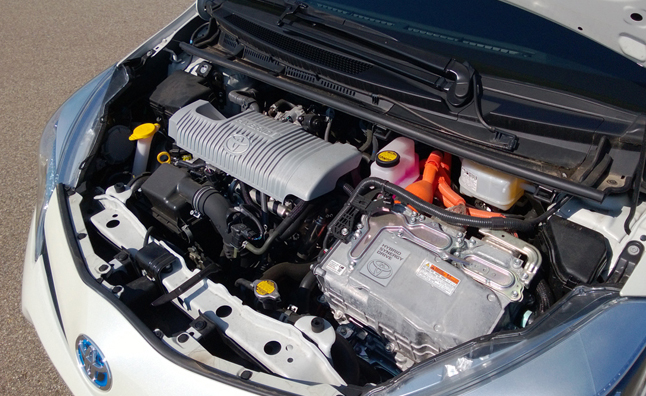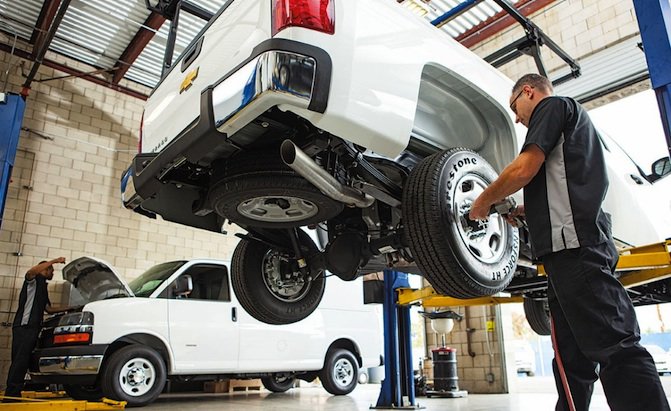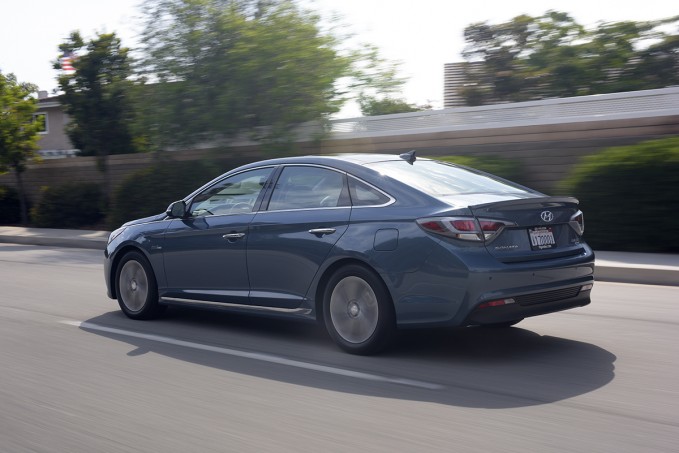Warranties are often advertised as a fix-everything safety net, but are they actually useful?
Recently, there have been some changes with the powertrain warranty coverage on new vehicles from General Motors and Fiat–Chrysler Automobiles. Both automakers have dropped their powertrain warranty coverage to five years/60,000 miles from 10 years/100,000 miles.
Powertrain warranties only cover a limited selection of items on your car, specifically components that only have to do with providing the vehicle power and making it move. Only Kia, Hyundai and Mitsubishi offer 10 year/100,000 mile powertrain warranties following the changes by GM and FCA.
See Also: What is a Powertrain Warranty?
In the past, those long warranties were offered to help get new buyers into showrooms, but now companies are realizing that such coverage doesn’t seem to impact new car buyers. Even Kia and Hyundai put some heavy restrictions on their warranties, like how they can’t be transferred to second owners.
Do Buyers Care About Powertrain Warranties?
“We have talked to our customers, and our research shows that free maintenance and warranty coverage aren’t high on the purchase consideration among buyers,” said Robert Wheeler from GM’s Customer Care Communications Team. He added that “dealers have told us that the included maintenance and a five-year/100,000 mile extended powertrain warranty don’t rank highly in awareness or appeal for their customers.”
Powertrain warranties are quite limited in terms of what they cover, making this policy change fairly insignificant in the long run. For GM, the company still touts very competitive powertrain warranties for its premium and luxury brands. “Even with these changes, our powertrain limited warranty programs remain very competitive,” assures Wheeler. Buick and Cadillac both offer 6 years and 70,000 miles of coverage.

“More than 95 percent of powertrain warranty claims happen before 60,000 miles,” says Dan Reid, from FCA’s powertrain communications team. “We anticipate a minimal impact on customers.”
Furthermore, modern cars are becoming more reliable than the cars of yesteryear, including vehicles from domestic automakers. So part of the reason for these warranty cuts might just be that automakers aren’t seeing many warranty claims after the first 60,000 miles or five years of a vehicle’s life.
See Also: Are American Cars Reliable and Does it Even Matter?
Boosting Hybrid Confidence
Interestingly enough, it seems like extensive warranty coverage helps sell hybrids to new car buyers.
“Our hybrid battery technology is a superior technology and gives us the confidence to offer such a warranty to our customers,” said Derek Joyce, of Hyundai’s Public Relations team. “This confidence in our hybrid batteries allows us to provide an extra level of warranty to our customers on this cutting edge powertrain, as an extra level of assurance.”
Hyundai offers more warranty coverage on its hybrid vehicles than its traditional gasoline powered cars. In fact the company offers a lifetime warranty on its hybrid batteries, in order to help alleviate any concerns that buyers may have about the advanced technology that these cars pack.

It’s an interesting contrast: gasoline powered cars with their familiar technology are getting shorter warranty terms while hybrid vehicles with their new and lesser known quirks are being advertised with longer warranties. It’s also worth noting that hybrids tend to rank quite a bit higher in reliability rankings than their gasoline counterparts.
See Also: Are Hybrid Reliable?
Warranties are designed to provide peace of mind to consumers, rather than advertising slogans. While GM and FCA tried to promote their vehicles to new car buyers by touting a longer than average warranty, it seemed to be ineffective.
Should new car buyers be concerned about the longevity of their new car purchase or whether they’ll be spending more money on repairs? While these recent changes by GM and FCA seem like a worrying move, the truth is that it likely won’t affect new car buyers at all.










